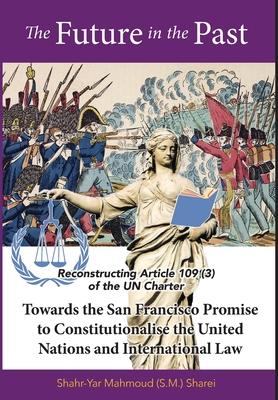Failed Global State
A state without a government is called a failed state. Chaos, injustice and armed conflict being rampant. Recent reminders are Congo, Haiti, Libya, Somalia, Sudan, and Yemen. And all war theaters, including Gaza and Ukraine.
As the UN is not a world government, global governance is left to international law. This is characterized as having no hierarchy, little judicial independence or due process of law, and no supreme or appeals court, unlike what we would expect from national laws.
While the 'peoples' are subjects of law, they are not allowed to be lawmakers or interlocutors. According to UN law, the P5 of the Security Council, weaponized by the veto, at their choosing, in any decision, can be above the law.
The colossal failure of the UNSC has been in keeping the peace. Considering the armed conflicts and genocides since World War II, the cumulative death toll is estimated at 70 million, exceeding the military casualty of WW2. According to UNHRC, we now have a record 120 million war refugees, more than ever before in history.
Wars injure indiscriminately, impacting our animals, plants, and the environment. With hundreds of millions of tons of CO2 annually generated by militaries, wars fuel the climate crisis. Even when we are not fighting, we spend $2.2 trillion annually or 250 million dollars an hour on the military, which, if used, will cause havoc and, if unused, is still a monumental waste of talent and resources.
Wars are being taken to outer space, where a limited nuclear explosion could kill most satellites - indiscriminately knocking down our GPS, internet, weather and communication satellites. Two recent resolutions at the Council, one on non-proliferation of nukes, and the other on complete demilitarization of space, including nukes, were both killed because of P5 No votes.
During the Ukraine-Russia and Israel-Gaza wars so far, we have had at least 7 vetoes by two of the P5 permanents. Each veto has meant no end to war, no 'ceasefire, ' or even a 'pause, ' stealing the hope of peace for the affected and the inflicted.
International law, stuck in its 1600s Westphalian European origins of state-centric absolute sovereigns, does not recognize the people as the planet's sovereigns. In the fragmented IL, during wars, both sides extensively refer to the "International Humanitarian Law," one of the bits of international law, to justify their actions. Whereas IHL is the "law of war," in other words, the legalization of what is considered acceptable killing, torture, taking captives, and forcing migration.
The Future in the Past
With all the good it does, the UN is a WW2 architecture with the Security Council at its apex. The Council is not only intra-vires in war and peace but sees all collective security in its competency. While the Council has proven incompetent in stopping wars, it has also been stagnant when it comes to the global existential threats posed by climate change, pandemics, food security, outer space, and AI.
Being state-centric rather than responsible for the global commons, a 2022 Council climate change resolution advanced by Germany and the EU, as an existential threat to promote more concrete action by states to meet their mitigation targets, was torpedoed by a single P5 No vote. Putting in doubt the sustainability of our fragile planet.
Being aware of the insecurity risks of the Security Council and believing the United Nations is a work in progress, the 1945 Anti-Veto Rebels gifted us the key to the transformation of the UN: the Charter review and upgrade - the change process and gateway we have never tried before to make the UN 2.0 possible. This research builds a legal case for upholding the San Francisco Promise of Article 109 (3), constructing a social contract between the United Nations states and planetary citizens.
